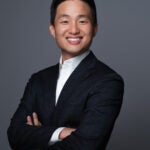Growing up in the Republic of Korea (ROK) during the 90s  and 2000s, the narrative surrounding the U.S.-ROK alliance was primarily dominated by the looming specter of North Korea and its nuclear threat. The core purpose of our alliance seems to counter these threats. But as time has unfolded, the alliance has proven far more intricate and multifaceted than I could have imagined.
and 2000s, the narrative surrounding the U.S.-ROK alliance was primarily dominated by the looming specter of North Korea and its nuclear threat. The core purpose of our alliance seems to counter these threats. But as time has unfolded, the alliance has proven far more intricate and multifaceted than I could have imagined.
The U.S.-ROK Free Trade Agreement (FTA) of the 2010s marked a shift that extended our collaboration beyond security concerns, paving the way for a broader, more prosperous partnership. On the 70th anniversary of the U.S.-ROK alliance, I reimagine the alliance’s potential as something greater, something that can bring about meaningful change on a global scale.
The COVID-19 pandemic revealed the prospect of global health as the alliance’s new frontier. Amid numerous possible avenues, it’s becoming increasingly evident that this realm holds the strategic opportunity to strengthen the alliance and positively impact the world beyond the Korean Peninsula. From a strategic point of view, both countries can align their existing efforts, save resources, and significantly influence global health agenda and beyond.
Both nations are significant contributors and partners to global health organizations such as GAVI, WHO, and The Global Fund. The U.S. is the single biggest donor to most global health organizations, and South Korea is the fastest-growing donor among OECD countries, with a 12 percent annual growth rate in Official Development Assistance (ODA) volume from 2010 to 2021. The U.S. and South Korea channel substantial resources into global health through their ODA budgets for Low and Middle-Income Countries (LMICs). The U.S. allocates 30% of the ODA budget, and South Korea directs 22% of its ODA budget to global health, making it more than USD 15 billion annually from both countries. This figure is over two times WHO’s annual budget.
The U.S.-ROK alliance has also made significant strides in shoring up the prevention, preparedness, and response capabilities of LMICs against infectious diseases. The U.S., through USAID, has invested more than 1.1 billion USD from 2009 in the Global Health Security Agenda (GHSA) to build a stronger and more resilient health system against infectious disease in LMICs. South Korea also committed $200 million to GHSA. It agreed to establish a Global Health Security Coordination Office in Seoul in collaboration with U.S, Center for Disease Control (CDC), ASEAN, and European CDC to address future health threats jointly.
The alliance demonstrated a well-coordinated partnership during the COVID-19 pandemic. The alliance established a comprehensive KORUS Global Vaccine Partnership to strengthen joint response capacity for infectious disease through supporting R&D, biometric research, and technology transfer in vaccine and diagnostic tools development and production to advance a common global health agenda. Both countries have also championed vaccine equity by supporting the COVAX facility, co-led by GAVI, CEPI, and WHO, as a testament to the collaborative action in addressing global health crises.
The alliance’s success in global health extends beyond development and diplomacy, resonating with security and economic stability on both regional and global scales. Global health serves as a catalyst, propelling the alliance’s broader global engagement goals.
The alliance stands at a critical juncture. The pandemic shifted the gravity of the world. And the new world requires a reimagined approach. While keeping the security concern at the core, embracing collaboration in global health aligns with the alliance’s core values of democracy, freedom, and human rights.
Ultimately, global health offers the U.S.-ROK alliance an opportunity to transcend its historical boundaries. The post-pandemic era invites the alliance to evolve beyond mere security concerns, realizing its full potential for the greater good of the world. It is time to open a new chapter of the alliance.
Hyung Joon Kim is a doctoral candidate at Harvard T.H. Chan School of Public Health, focusing on social and behavioral sciences. Prior to Harvard, he worked for various UNICEF offices in Ghana, Nepal, and Malaysia, and managed different social behavioral change programs for health. He is also a fellow in the Next Generation of the U.S.-ROK Alliance project at the Center for Strategic and International Studies (CSIS) in Washington, D.C.



